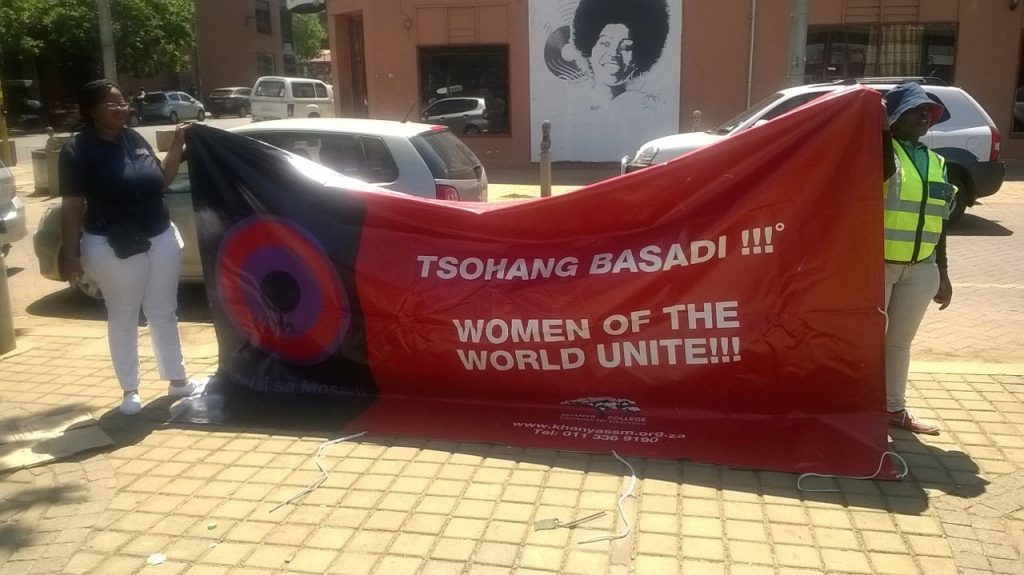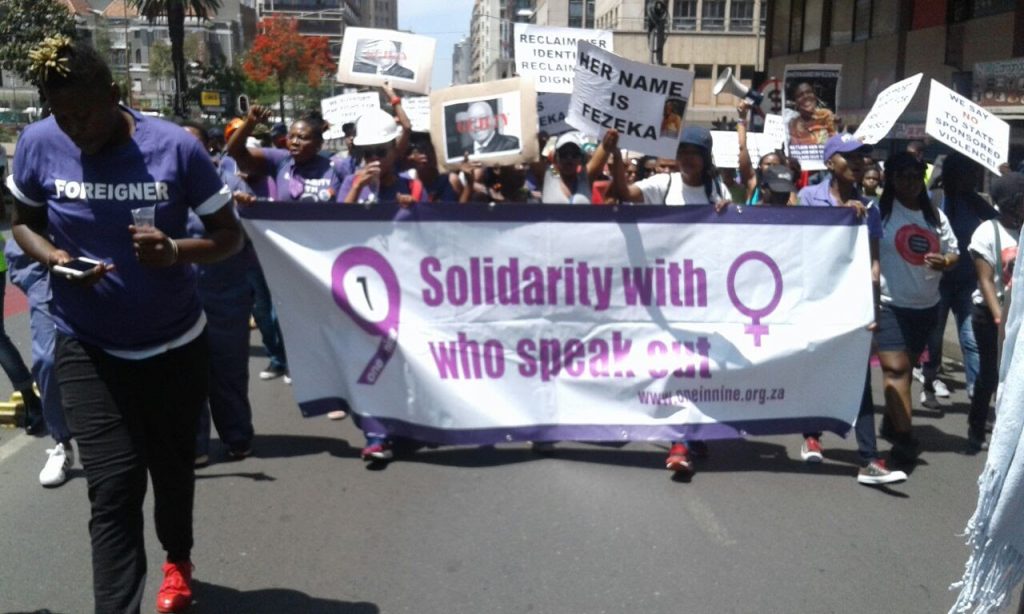This year Khanya College celebrates its 19th annual Winter School from 16-22 July 2017, at the House of Movements, in Johannesburg. The theme of the School is Challenges of building feminist organisations. This theme is timely given the spate of violence that has come to the fore recently, that takes place against black women and children in South Africa on a daily basis.
Khanya College organises the Winter School to facilitate the development of social justice activism within Southern Africa and to build solidarity networks. The School aims to develop the analytical, theoretical and organisational skills of activists engaged in contemporary struggles. Over the five days activists from different sectors – land, health, environment, housing, women, etc – explore and engage in debates about the theme and their struggles. Participants stay in community solidarity accommodation with local activists and the school uses popular education methodologies that can be reproduced when activists return home.
The theme of the School, ‘Challenges of building feminist organisations’, is a focus on feminism, on building equity and progressive social relations between people, between men and women and children. The theme raises a number of challenges for the School: firstly what is feminism, secondly, what does it mean to ‘feminise’ our organisations and lastly, if this is desirable, how do we feminise ourselves, our daily lives at home, the way we organise and take up struggles and the organisations we build and reproduce?
Feminism is a concept that has developed historically drawing on international struggles. At the same time, feminism needs to be contextualised locally and cannot just be imposed. In general, feminism is about identifying the particular kind of egalitarian human relationships that we want to promote between people, taking into account the history of patriarchy, social inequality and the social division of labour. In South Africa, black working class women represent the face of poverty and social inequality.
The School is an opportunity to historicise and understand the history of slavery, colonialism and apartheid and its impact on current behaviour patterns, values and attitudes and why despite so many constitutional rights, black women (and women internationally) continue to live in conditions of poverty in an unequal society.
Feminism is also about developing a creative context in which working women (and men and children) can exercise and develop their full potential, free of prejudice, taking into account the particular historic discrimination that women, especially black women have endured. It also means understanding and being more sensitive to the conditions, historical and contemporary, that continue to keep women in positions of subordination, including their sex, gender, colour and class, language and sexuality.
Many people are often ‘turned off’ by the concept of feminism and some of the myths associated with it include: women wanting too many rights; women who hate men; women wanting to be men or wanting to dominate men; women who cant get a man; women who like women; women who just don’t know their place in the home and society; and women who want to be like white women. Some (even women) say, ‘feminism is not our culture’; ‘we are happy with our culture and happy for men to be the leaders’. What does this mean for our organisations, our organising and the society we want to live in?
The organisations we build are a reflection of the society we want to live in. How do we feminise our organisations? For many years in South Africa and internationally, the social justice movement has debated and struggled for equality between men and women. Different strategies were advocated at an international level by institutions like the United Nations, academics and non governmental organisations amongst others. Some strategies have focused on ‘gender’ vs women’s liberation, ‘mainstreaming gender’, forming separate organisations or subcommittees or ‘women’s wings’ or ‘leagues’ for women only as a mechanism to build women’s confidence and resolve their unequal status. One of the challenges was that women’s issues were relegated ‘outside’ the organisation and very little impact has been made in local organisations and struggles. The challenge of feminising the organisation goes beyond representation (50/50) and subcommittees, to how the organisation is structured, how campaigns are taken up and how demands are decided upon.



